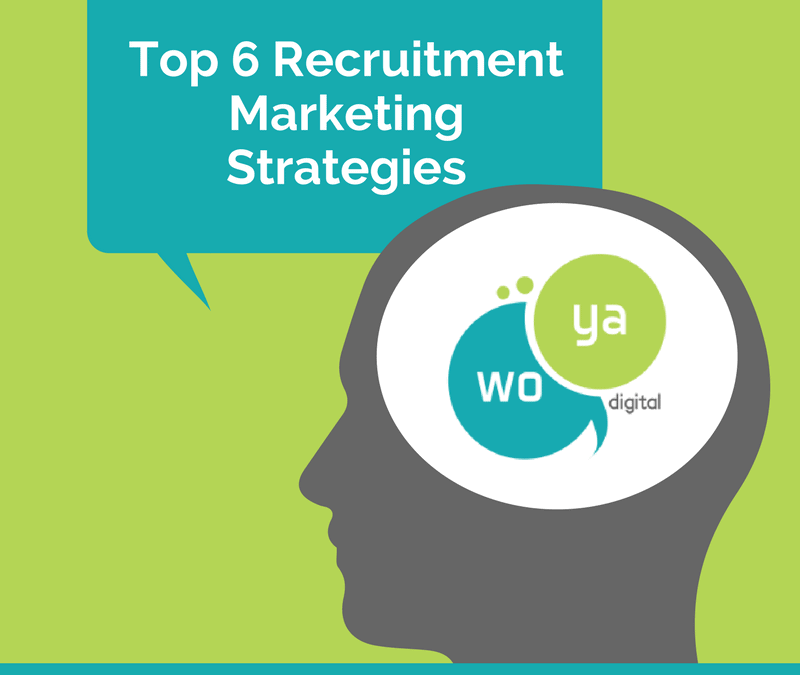What Are Recruitment Marketing Strategies?
Recruitment marketing strategies and techniques are focused on two primary techniques. The use of both strategies and all techniques are essential ingredients: Inbound Marketing:
- Marketing through use of engaging content that appeals to your audience, quite simply they find and come to you. This customer or candidate offers much more value as they will be more suited to the vacancy or at least interested.
- Inbound marketing techniques in recruitment marketing could include:
- Posting job adverts on job boards
- Targeted paid advertising on
- Social media platforms such as Facebook, LinkedIn and Twitter
- Job boards such as Indeed
- Blogs and subject matter expert articles on your website
- Targeted email campaigns or auto-responders
- Search engine optimisation – SEO
- Social media content generation
- Branded images / videos
- Blogs / articles
- Sales messages
- New vacancies
- Word of mouth / Referrals
Outbound Marketing:
- This is generally more traditional methods of marketing.
- Focused on direct marketing tactics that push out a general message to candidates for example such as:
- Spam emails
- Cold calling
- Trade shows
- TV / Radio advertising
- Print adverts (leaflets, newspapers or magazines, brochures etc)
- Online banner adverts
Both recruitment marketing strategies are instrumentally important for recruiting a potential candidate. However, Inbound Marketing is gaining significant momentum as it aids in building long-term relationships and encourages dialogue between interested candidates and the recruitment agency. Here are a few recruitment marketing strategies that support candidate attraction:
1 Social Media
Social media platforms have become part of our modern lives. Today, Millennials are using these platforms for a variety of purposes. Having an active social media presence can greatly assist you in acquiring and attracting the right talent. To engage potential candidates, post regularly to social media platforms to endorse employment opportunities and recruitment agencies. Your social media strategy should include all popular social media platforms to include: LinkedIn, Facebook, Twitter and Instagram. Moreover, you should also focus on improving your search engine ranking through blogs, discussion platforms, link building, and so on.
2. Paid Social Media Advertising
While organic strategies do produce results, it is getting harder. Paid social media advertising on Facebook and LinkedIn can be extremely targeted and further amplify your reach. Paid adverts have a greater reach and produce immediate results. If you wish to reach your intended audience immediately, then invest in paid social media advertisement campaigns. A balanced organic and paid marketing strategy can produce massive results.
3. Website
To build your trust as a credible entity, a professionally designed and responsive website is a necessity in recruitment. Having a strong online presence will improve your chances of attracting the best talent. A modern, mobile friendly website will increase your professional image, enabling you to engage easily and attract your desired audience. The content featured on your website will assist in ensuring you have a better search engine ranking for better visibility.
4. Mobile Web
According to a survey conducted by Statcounter, mobile web usage in the UK has now superseded desktop consumption. This clearly indicates that smartphone usage has significantly increased. Making it integral for recruitment agencies to have a strong mobile web presence. Mobile web must be a primary constituent of your marketing mix. Having an interactive and responsive mobile website will give you the best opportunity of reaching and engaging with your intended audience.
5. Job Boards
Head hunting websites are essentially important for the recruitment agency. Candidates looking for a job or career switch are most likely to visit a job board in search of potential employers. Job posting on popular job boards in the United Kingdom. Such as Reed, CVLibrary, Monster, Indeed and Jobsite will create more visibility of your brand, and will aid in attracting potential candidates.
6. Job Advert Quality
Modern day recruitment competition is cutting-edge. Businesses have to focus on all aspects of marketing including content, style, layout, and design. Job advert quality is key in reflecting your credibility and professionalism as an agency, and being taken seriously. Impeccable content paired with a responsive website, tailored social media campaigns and paid advertising will go a long way in supporting you to reach your target audience and attract the best talent. Make sure to give your target audience a synchronous experience across all mediums for desired results. All these recruitment marketing strategies have produced greater outcomes for agencies seeking to acquire talent. Having a well-kept marketing and social media strategy in place can also help you in reaching your goal faster.
Need Some Recruitment Marketing Help?
The team at Woya Digital is a social media marketing agency. Recruitment marketing is one of our specialities sectors. We offer web, SEO and social media marketing to a range of companies in the UK. Our fixed price offering is straightforward and yields results! We are fantastic at social media management, website design and SEO, all paid monthly, with no upfront investment.

